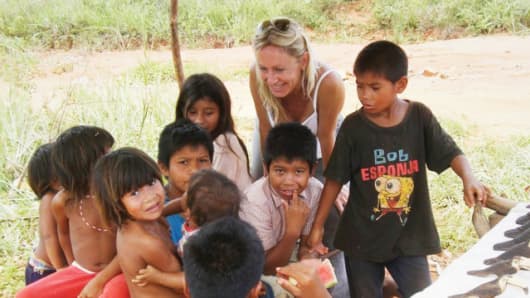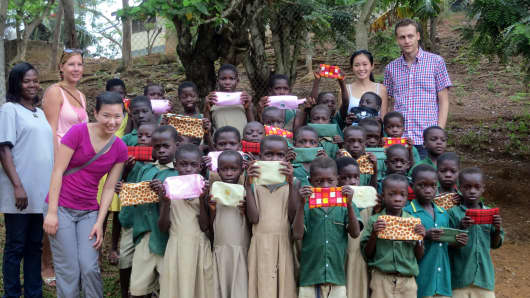If you had told Roberta Giassetti that, after graduating from business school with a well-paying job at consulting giant Bain & Co., she would abandon corporate America to make 60 percent less working with "street children" in Brazil, she probably would have said you were crazy.
That's because when the native Italian arrived in the U.S. in 1999, she had only one goal in mind: to conquer the business world. It was what she had groomed herself for most of her adult life.
After spending her first few years in the U.S. working for companies such as Benton and Snaidero, she did what many ambitious young people do: She applied to some of the best business schools in the nation. She was excited on being accepted into the University of Pennsylvania's Wharton School. She was on her way, she thought. One step closer to achieving her dream.
That's when an odd thing happened, and Giassetti made an abrupt U-turn. She became involved with a number of activities and groups on the Wharton campus—itself an unusual experience for her.
"Coming from Italy, it was a really different kind of approach to giving back to society," Giassetti said, admitting that, previously, she rarely had been interested in social issues and had not been the sort of person to volunteer.
But the camaraderie and diversity of views at school inspired her, resonated with her. "Wharton changed my way of thinking and behaving," she said.
(Read More: Young Start-Ups Turn to Pitch Competitions as Launching Pads)
Groups such as the Wharton International Volunteer Program (WIVP) introduced Giassetti to a host of people and issues she never would have come in contact with back home. Working with WIVP also offered "a great opportunity to better understand the economic development situation all over the world," she said.
While a member of the group, Giassetti was part of a team that worked with the World Wildlife Fund to develop a marketing plan for an eco-tourism center in Vladivostok, Russia, that would bring much-needed financing to the fund's efforts to protect the region's endangered tiger population.
"It was a very, very enriching experience," Giassetti said of her time in Russia.



